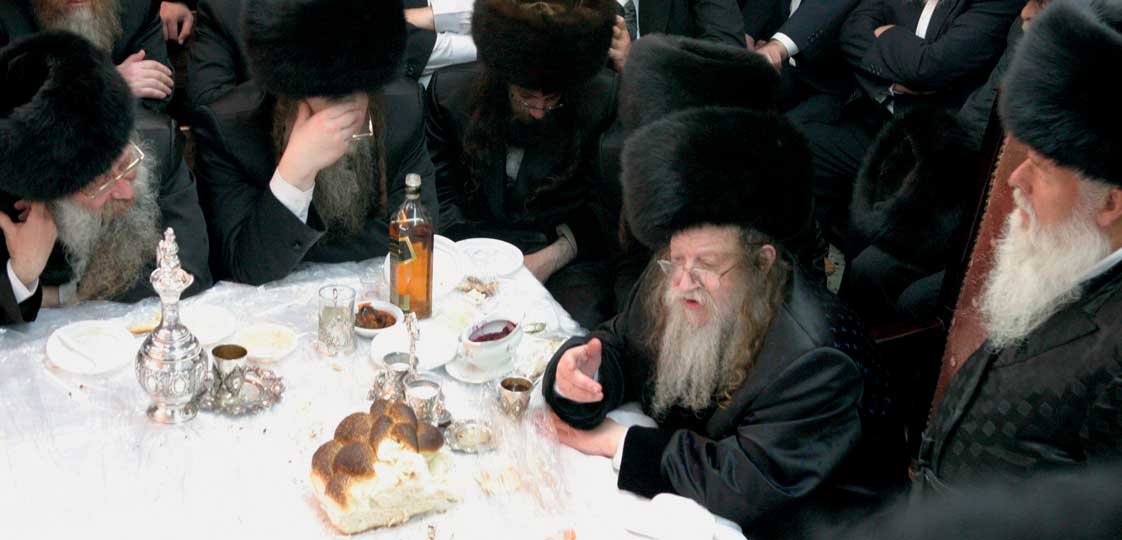Faith and food have gone hand in hand since the dawn of history. Many religious dietary laws guide believers worldwide in the most deeply engrained routine of their daily lives: preparing and eating meals.

The ancient bond between food and religion rests on a complex system of reason and belief. Its roots lie in the analogy between physical and spiritual nourishment, the untainted nature of what is eaten and of the soul.
Many religions classify different foods as allowed or forbidden. Since Buddhists and Hindus follow the principle of ahimsa (non-violence), they must not kill animals and thus have a vegetarian diet.
Jews must eat kosher food, and abstain from certain things, including pork and shellfish, and follow rules when preparing food, like not mixing meat with any kind of milk product.
Muslims can only eat food that is halal (permissible) and must respect a fair number of bans (haram), first and foremost on pork and alcohol. By comparison Christians enjoy much more freedom, although many Catholics still refrain from eating meat on Fridays and on Ash Wednesday.
Most religions also prescribe that their followers eat in moderation: it is no accident that gluttony is one of the seven deadly sins, while Islam views greed as punishable by God. Fasting practices deserve a separate discussion. While Catholics must not eat or drink one hour before taking communion, the best known fast is Ramadan, the ninth month of the lunar calendar, during which Muslims are forbidden to eat or drink from dawn to sunset.
Michel Desjardins, a professor in the Department of Religion and Culture at Wilfrid Laurier University in Canada and a specialist on the subject of food and spirituality, says: “Ramadan is a remarkable opportunity to increase spirituality in people’s daily lives; to force them to think of the poor by experiencing hunger and, at the same time, the evening meals, heralding the move from fasting to feasting, are crucial to building the community”.
According to Desjardins, a few years ago a group of Canadian Catholics ‘copied’ the Ramadan ritual by fasting from dawn until dusk and noted that it helped them become better Christians!
While the link between eating and religion is many thousands of years old, some of the related ethical, social and legal questions are very hot topics today, partly because they are tied to immigration. The biggest issue, in terms of the tensions it generates, is the conflict between the West’s increasing sensitivity to animal welfare and the techniques of ritual slaughter used to obtain halal meat (by cutting the animal’s main arteries and allowing its blood to drain) and kosher meat (done without stunning the animal first). The second issue concerns the public (or, as often is the case in the US, private) certification of Islamic and Jewish food products.
But perhaps the most complex issues stem from the practical implications of religious freedom. Legal expert Antonio Chizzoniti, from the Università Cattolica del Sacro Cuore of Piacenza, Italy, and coauthor of the e-book Cibo e religione, diritto e diritti [‘Food and Religion: Laws and Rights’], notes that “when religious freedom moves from being a human right to a constitutionally recognised right, public resources must necessarily be invested to safeguard it.
Examples are canteens in schools, prisons and hospitals. In a rich country, guaranteeing everyone a meal conforming to their religious practice is not a problem, but it becomes much harder in times of austerity.”
The ancient bond between food and religion rests on a complex system of reason and belief. Its roots lie in the analogy between physical and spiritual nourishment, the untainted nature of what is eaten and of the soul.





